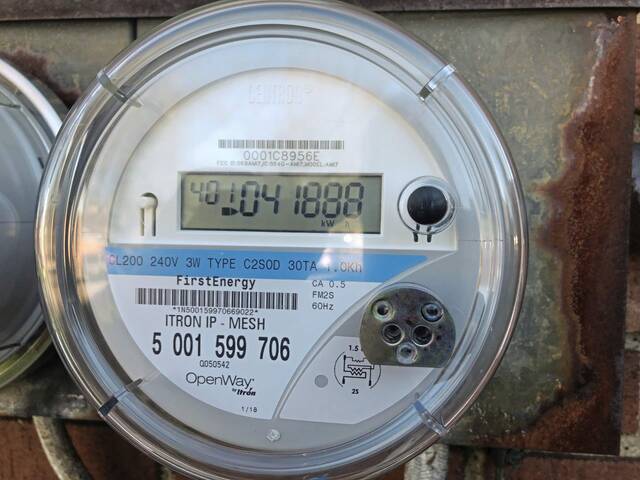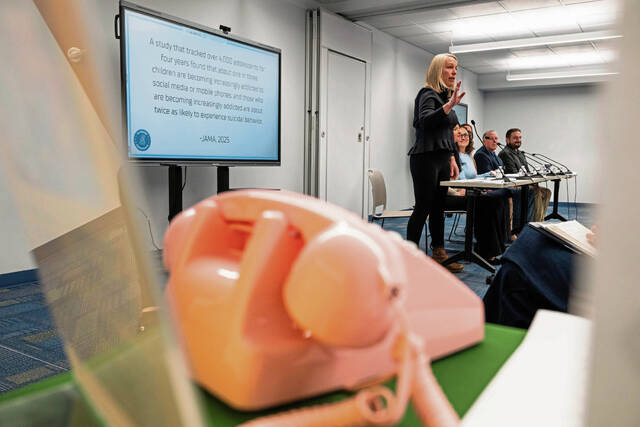It is now up to the Third U.S. Circuit Court of Appeals to decide if a lower court decision ruling Gov. Tom Wolf’s covid-19 shutdown orders unconstitutional ought to be stayed.
The plaintiffs in the underlying case — seven business owners who challenged orders to stay-at-home, close non-essential businesses and limit gathering sizes — said in a brief filed Wednesday that there is no reason to stay the decision of U.S. District Judge William Stickman IV.
“There is no time in our history that the continued infringement upon and violation of the citizens’ constitutional rights can be said to further the public’s interest,” they wrote.
The Third Circuit now has briefs from both parties on the issue. Wolf, through the state attorney general’s office, filed a motion seeking the stay on Friday.
In Stickman’s Sept. 14 ruling, the judge found that Wolf’s March orders violated the First Amendment right to assemble, as well as due process and equal protection.
Wolf: Judge downplayed pandemic
However, in the government’s brief, the state attorney general’s office argued that Stickman “downplayed the severity of the global pandemic.”
“The district court’s failure to apprehend the law, failure to fulfill its role in our judicial hierarchy, and failure to understand the commonwealth’s arguments in this case, rendered that court’s determination fatally flawed,” the attorney general wrote. “The district court’s erroneous decision — a decision that will undoubtedly cost lives — should be stayed and, ultimately, reversed.”
The government focused its brief on what it calls the “flaws” in Stickman’s legal analysis, as well as the impact it could have if not stayed pending appeal.
While more Pennsylvanians could contract the virus — and even die — if the ruling is not stayed, the governor’s attorneys wrote that a stay is not likely to harm the plaintiffs.
For example, they wrote, a stay of the congregate gathering limits wouldn’t affect the plaintiff’s regular retail operations.
The brief further defended the governor’s order on closing non-essential businesses back in March, saying that, despite Stickman’s findings, the process was not arbitrary.
“Respectfully, this was a policy decision made during a rapidly evolving global health disaster,” they wrote. “The governor’s order balanced the economic interests of the commonwealth against the health and lives of millions of Pennsylvanians. Temporarily closing certain physical locations in order to protect lives is certainly not invidious or wholly arbitrary. The health and survival of our residents is the most compelling of state interests.”
Conflicting rulings noted
In addition to arguing its likely success on the merits of the case, the attorney general’s office also noted a split between district courts in the circuit. The district court in Philadelphia ruled against a group of business owners that filed a similar lawsuit, finding that a temporary closure order does not deprive anyone of their constitutional rights.
“Following the holding of one court necessarily means ignoring the holding of another, and may prevent the commonwealth from targeting mitigation efforts in areas of the most dire need,” the governor’s attorneys wrote. “This not only makes it difficult for the administration to manage ongoing mitigation efforts, but also creates uncertainty, confusion, and danger for Pennsylvanians.”
The plaintiffs’ arguments
In their brief filed Wednesday, though, the plaintiffs’ attorneys argued to the Third Circuit that the governor was trying to improperly introduce evidence — such as evidence of the virus spreading in large groups — that was not previously considered before Stickman.
“Defendants’ continued attempts to circumvent the federal Rules of Evidence and Rules of Appellate Procedure should be met with a summary dismissal of their motion,” the plaintiffs wrote.
Even though there was a hearing and full record before Stickman, they told the Third Circuit that Wolf “did not proffer any specific evidence to differentiate between the danger allegedly posed by gatherings governed by specific numeric limitations and gatherings governed by occupancy limitations.
“Despite defendants having every opportunity to make a record, there is simply no evidence that would justify, from a constitutional perspective, the disparate treatment of gatherings.”
Referring to the governor’s method of choosing life-sustaining versus non-life sustaining businesses, the plaintiffs’ attorneys said the process was “arbitrary and irrational — justifying the District Court’s decision.”
“The issue before this Court is not whether the state may order businesses to close temporarily in the face of a pandemic; it is whether that order is applied equally to similarly situated persons and businesses.”








